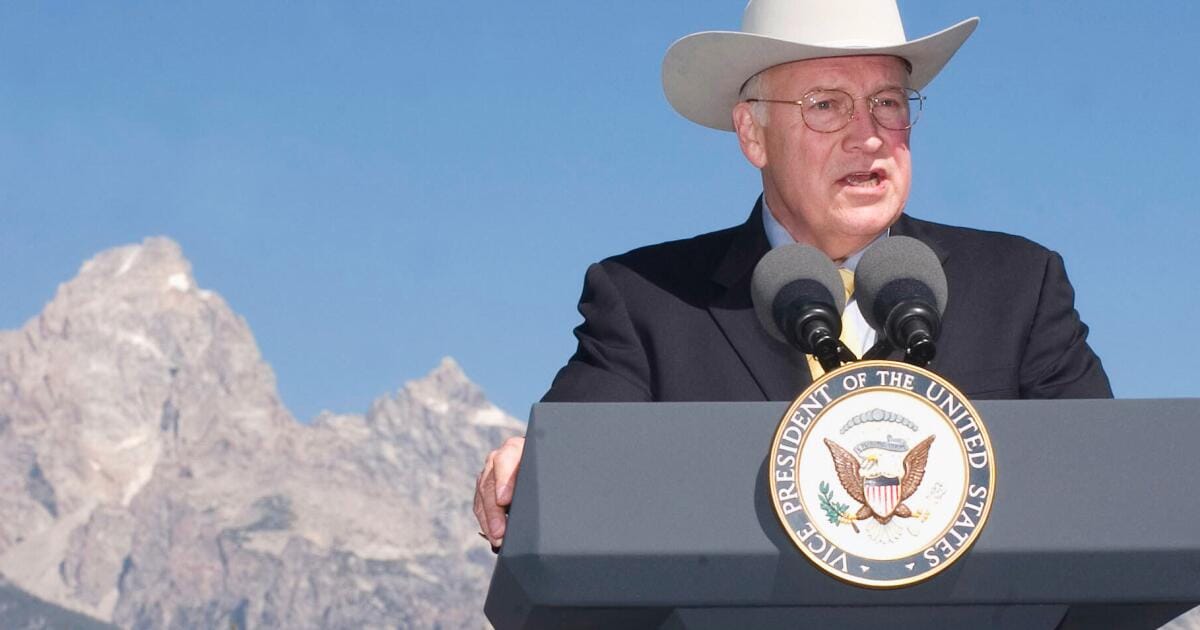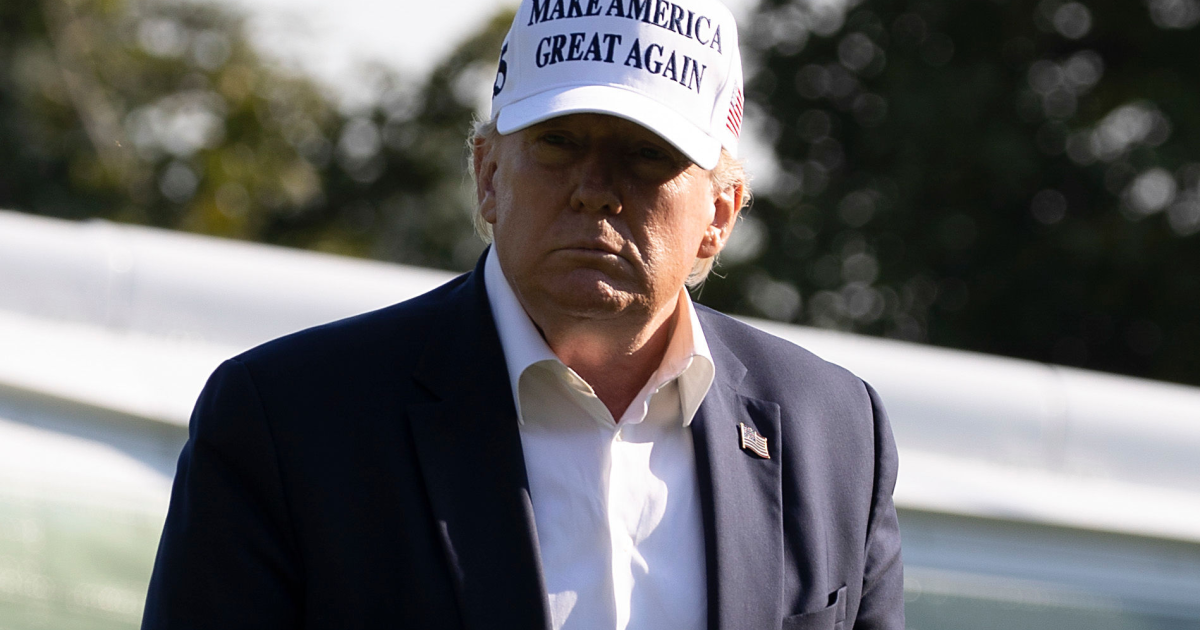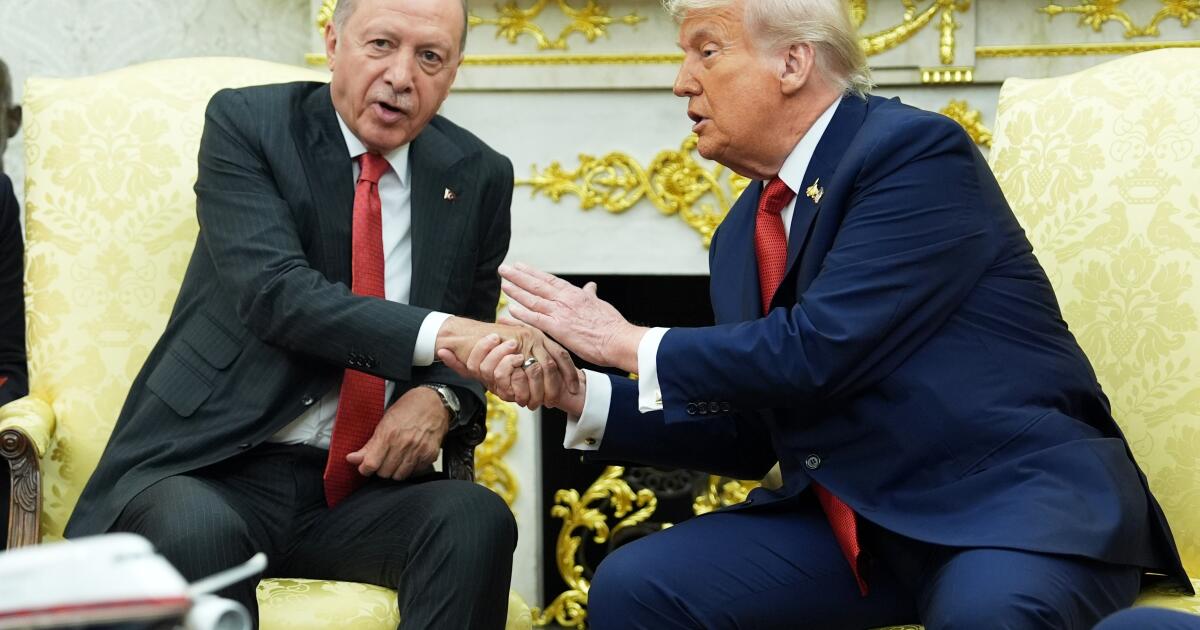Dick Cheney’s political legacy is mixed in home state of Wyoming
CHEYENNE, Wyo. — Political stars often rise and fall but few have had a more dramatic trajectory than Dick Cheney in his home state of Wyoming.
Hours after Cheney died Tuesday at 84, the state lowered flags at the Republican governor’s order. Some politicians in the state offered at times measured praise of the former vice president.
But among a large majority of voters in Wyoming, Cheney has been persona non grata for more than five years now, his reputation brought down amid President Trump’s withering politics.
Trump has criticized Cheney for the drawn-out and costly Iraq war, and his daughter, former Republican Rep. Liz Cheney, for saying Trump should never be allowed back in the White House after the Jan. 6, 2021, attack on the U.S. Capitol.
This resonated with many residents, including Jeanine Stebbing, of Cheyenne, whose last straw was the idea that Trump shouldn’t be reelected.
“There was no open-mindedness. Nothing about how, ‘We understand that our neighbors here are supportive of Trump.’ Just the idea that we were all stupid, is what it felt like,” Stebbing said Tuesday.
The final blow for the Cheney family in Wyoming came in 2022, when Trump supported ranching attorney Harriet Hageman to oppose Liz Cheney for a fourth term as the state’s U.S. representative.
Hageman got two-thirds of the vote in the Republican primary, a decisive win in a state with so few Democrats that the general election is considered inconsequential for major races.
Trump’s biggest gripe, ultimately, was that Liz Cheney voted to impeach him, then co-led the congressional investigation into his role in the attack. In Wyoming, a prevailing belief was Liz Cheney seemed more focused on taking down Trump than on representing the state.
“I was very disappointed that, you know, somebody who came from this state would be so adamantly blind to anything other than what she wanted to do. And he joined in as well,” Stebbing said.
Not even Dick Cheney’s endorsement of his daughter over Hageman — and of Kamala Harris over Trump last year — made a difference, as Trump’s appeal in Wyoming only grew. Trump won Wyoming by more than any other state in 2016, 2020 and 2024, the year of his biggest margin in the state.
Some expressed sadness that George W. Bush’s vice president would not be remembered well by so many in the state.
“On the 16th anniversary of my own father’s death today, I can appreciate a father who stood by his daughter, which he did loyally and truthfully,” said Republican state Sen. Tara Nethercott, who is Senate majority floor leader. “He stood by his daughter during those difficult times.”
Nethercott wouldn’t speculate if Liz Cheney might yet have a political future. Wyoming’s support of Trump “speaks volumes,” she said.
Liz Cheney has continued to live in Jackson Hole, near her parents, while traveling back and forth to Charlottesville to teach at the University of Virginia Center for Politics.
For Brian Farmer — who, like Dick Cheney, grew up in Casper and went to the University of Wyoming — Cheney’s legacy will be his service to the state, no matter where people stand on issues.
“He was always somebody whose path I looked at, sought to follow. Very quiet, soft-spoken at times, Very bombastic and loud at others,” said Farmer, executive director of the Wyoming School Boards Association.
Cheney had a 30-year career in politics, from serving as President Gerald Ford’s young chief of staff to representing Wyoming in Congress in the 1980s. He rose to a top GOP leadership role in Congress — one his daughter, too, would later fill — before being named President George H.W. Bush’s defense secretary.
After his time in office, the CEO of oilfield services company Halliburton kept active in state politics, voicing support and even stumping for Republican candidates.
And yet Cheney was so low-key and unassuming, his mere presence was the whole point — not the nice things he had to say, for example, about former Gov. Jim Geringer, who handily won reelection in 1998.
“You talk about people walking into a room and commanding it. That man did it without even speaking a word,” said state Rep. Landon Brown, a Cheyenne Republican who met him several times including at University of Wyoming football games.
“He’s going to be sincerely missed in this state,” he said. “Maybe not by everybody.”
Gruver writes for the Associated Press.


